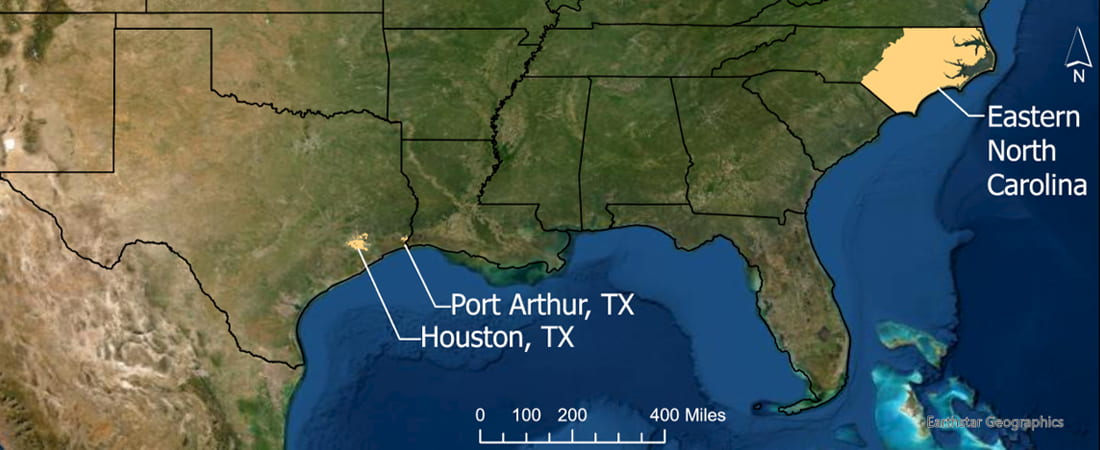WHAT IS CHEER?
The Coastal Hazards, Economic prosperity, and Resilience (CHEER) Hub is a five-year, $16.5 million project funded by the National Science Foundation Coastlines and People (CoPe) program. It is headquartered in the Disaster Research Center at the University of Delaware.
The Hub seeks to understand and improve the complex system of regional hurricane risk management by designing and evaluating policies and programs that (a) will be effective over the long term because they consider population growth, changing coastal conditions, and the resilience of all stakeholders, and (b) are likely to actually be implemented because they align with stakeholders’ natural decision-making processes, offer win-win outcomes in which all stakeholders are better off, and address multiple objectives, including economic prosperity.

Smarter Planning for a Safer Coastline:
The CHEER Initiative

Case Study Areas
Hub research focuses on three case study areas—Eastern North Carolina; Port Arthur, TX; and Houston, TX–allowing development of the rich, qualitative understanding of household experiences that emerges from working closely with community partners; and facilitating integration of interdisciplinary advances. Nevertheless, the Hub aims to develop findings and models that are generalizable.

ABOUT NSF CoPe
The National Science Foundation’s Coastlines and People program supports diverse, innovative, multi-institution awards that are focused on critically important coastlines and people research that is integrated with broadening participation goals. The objective is to support Coastal Research Hubs, structured using a convergent science approach, at the nexus between coastal sustainability, human dimensions, and coastal processes to transform understanding of interactions among natural, human-built, and social systems in coastal, populated environments.



